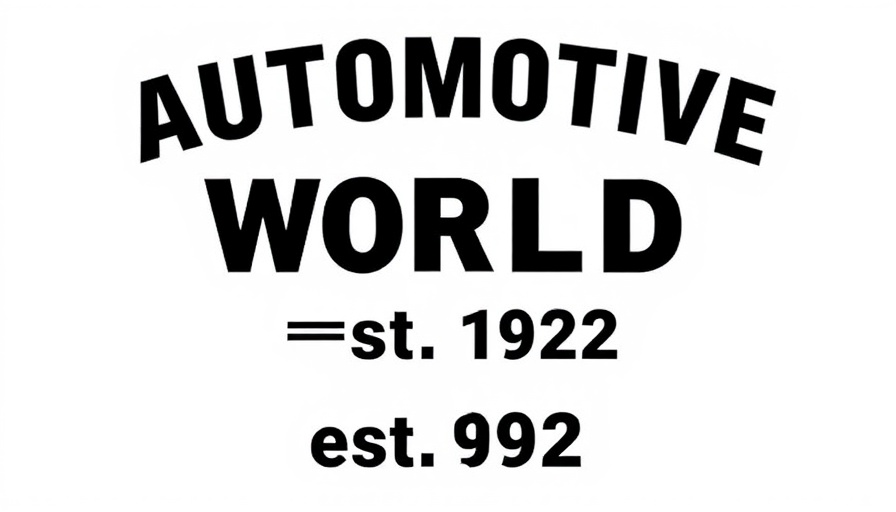
Understanding the Impact of Proposed US Tariffs on Imported Cars
In a move that has sent ripples across the global automotive industry, the United States has announced a staggering 25% tariff on all passenger cars and light commercial vehicles not manufactured domestically. This decision, slated to take effect on April 3, 2025, has raised alarm bells within the European automotive realm, particularly voiced by the VDA (German Association of the Automotive Industry). VDA President Hildegard Müller stressed the disastrous implications for free trade, highlighting potential negative consequences for both the industry and consumers, especially in North America.
The Economic Repercussions Are Significantly Widespread
The repercussions of these tariffs extend far beyond the borders of the US. According to a VDA survey, a staggering 86% of mid-sized automotive companies in Germany believe that these tariffs will affect them directly or indirectly. Such tariffs disrupt existing supply chains, further complicating the interconnected nature of global automotive trade. The economic narrative is not just limited to export losses from the EU; it impacts job markets, investment prospects, and consumer pricing across the board.
Calling for Negotiations: A Path Toward Balanced Trade
The VDA is urging both the US and EU to engage in immediate negotiations to address these tariffs through a bilateral agreement. Much like the trade negotiations seen during President Trump’s administration, which yielded beneficial outcomes, the current situation calls for a similar approach—collaborative dialogue aimed at resolving tariff and non-tariff barriers. Reducing these obstacles will not only promote efficiency but is also essential for fostering economic synergy between the US and EU.
The Long Road Ahead: Future Implications for the Automotive Industry
Looking forward, the threat of a global trade conflict remains a significant concern. Müller warns that heightened protectionism could hinder economic growth and lead to a negative cycle affecting both jobs and consumer prices globally. For dealership owners and general managers, understanding these dynamics is crucial; it shapes how they approach inventory management, pricing strategies, and overall market positioning.
Embracing Change in Auto Sales Training
In light of these changes, dealership owners must reevaluate their auto sales training programs. The focus should be on equipping teams with knowledge about the implications of tariffs and fostering agility in their sales strategies. Training should incorporate real-world scenarios, empowering sales associates with insights into how to communicate value to consumers, particularly as prices may fluctuate due to new tariffs.
The Challenge of Adapting to New Market Realities
Incorporating this knowledge into auto salesman training can significantly impact how dealers respond to the evolving market. Rather than perceiving these tariffs as obstacles, there's an opportunity to cultivate a sales team that can pivot and respond proactively to market shocks. This requires strategic thinking and adaptability, qualities that are invaluable in today's competitive automotive landscape.
By aligning training with immediate global market realities, dealerships can not only survive but thrive amidst uncertainty, ensuring that their teams remain informed, equipped, and ready to engage with consumers effectively.
 Add Row
Add Row  Add
Add 

 Add Row
Add Row  Add Element
Add Element 




Write A Comment